3-2. The culmination of Ras Algethi at 21h in the night
of July 23 (→ 22 / 7 + 1) surely
ought to have indicated this was the place where Hercules
was 'turned upside down', 'castrated' ('cat-asterized'):
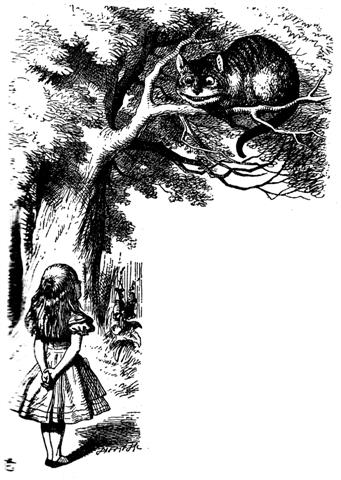
| Jan 18 (383) |
19 |
20 |
21 |
22 |
23 (388) |
 |
 |
 |
 |
 |
 |
|
Ea3-1 (66) |
Ea3-2 |
Ea3-3 |
Ea3-4 |
Ea3-5 |
Ea3-6 (71) |
| E rere te toki - te hau
tea - te vaero |
toki - inoino ma te hatu
huri |
te hupee tupu i ruga ia
ia |
te toki - te kihikihi |
te toki |
toki
hakakaikai |
Vaero.
Chicken's long tail feather; lobster's antenna (vaero ura).
Vanaga. Tail of a kite, tail of a bird (uero). T Pau.:
tuavaero, rump; kaero, tail. Mgv.: vero, tail.
Mq.: veó, id. Ta.: aero, id. Churchill.
|
Jan 1 (366) |
*20 |
Jan 20 |
|
 |
 |
|
Ea2-17 (49) |
Ea3-3 (68) |
... There
could have been 30 dark nights from 12 * 29½
= 354 (DECEMBER 20) to
JANUARY 19
(on average the coldest day of the year
north of the equator) ...
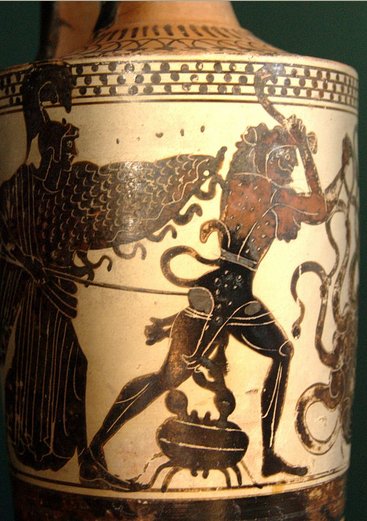
|
|
8h
(121.7)
χ
Gemini (121.0),
NAOS (Ship) =
ζ
Puppis
(121.3) |
ρ
Puppis (122.0),
HEAP OF FUEL =
μ
Cancri
(122.1),
ζ
Monocerotis (122.3), ψ
Cancri (122.6),
REGOR (Roger backwards) =
γ
Velorum
(122.7) |
TEGMINE (The Cover) = ζ Cancri
(123.3) |
AL TARF
(The End) = β
Cancri
(124.3)
RAS
ALGETHI (α Herculis) |
χ
Cancri (125.2),
BRIGHT
FIRE = λ
Cancri (125.4)
*84.0 = *125.4 - *41.4 |
AVIOR =
ε
Carinae (126.4),
φ
Cancri (126.8)
*85.0 = *126.4 - *41.4 |
|
July 20 (*121) |
21 |
22-7 → π |
23 |
24 |
25
(206) |
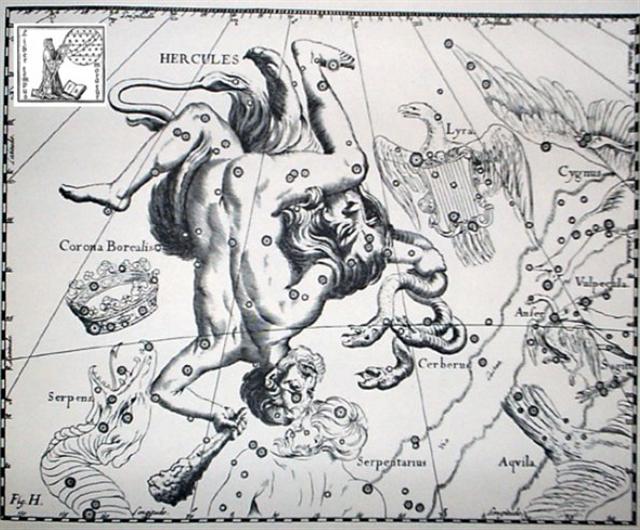
And immediately afterwards a new ruler ought to be installed
(haka-ariki).
Long live the King!

|
MARCH 31
(*10) |
APRIL 1
(91) |
2 (157 +
300) |
3 |
 |
 |
 |
 |
|
Gb5-22 (2
* 73) |
Gb5-23 |
Gb5-24
(148) |
Gb5-25 (378) |
|
ALMAAZ (The Male
Goat) =
ε
Aurigae
(74.7),
HAEDUS I =
ζ
Aurigae
(74.8) |
HAEDUS II = η Aurigae
(75.9) |
5h (*76.1)
ε
Leporis (76.0),
CURSA (Footstool) =
β
Eridani (76.4),
λ
Eridani (76.7)
*35.0 = *76.4 - *41.4 |
μ Aurigae, μ Leporis (77.6) |
|
June 3
(*74) |
4 |
5 |
6 (157 =
314 / 2) |
|
°May
30 (150) |
31 |
°June 1
(*72) |
2 |
|
'May 7 |
8 (128) |
9 (*414) |
10 (*50) |
|
"April 23 |
24 (*399) |
25 (115) |
26 (*36) |
|
... On
the twenty-fifth day of the first month (Vaitu
Nui), Ira and Makoi set
sail; on the first day of June ('Maro'),
the bow of Ira's canoe appeared on
the distant horizon, came closer and closer
on its course, and sailed along, and finally
(one) could see the (new home) land ... [E:17] |
|
NAKSHATRA VIEW: |
|
SEPT 29 |
30 (273 =
3 * 91) |
OCT 1
(457 - 183) |
2 |
|
κ Ophiuchi (256.2), ζ Arae (256.5), ε Arae
(256.8),
CUJAM (Club) = ε Herculi
(256.9) |
No star listed (257) |
17h (*258.7)
ARRAKIS = μ Draconis
(258.7) |
Mula-19 (The Root)
SABIK (The Preceding One) =
η
Ophiuchi
(259.7),
η
Scorpii (259.9) |
 |
|
Dec 2
(336 = 4 * 84) |
3 (273 +
64 = 337) |
4 |
5 |
|
Jan 24 |
25 (13 * 30 = 390) |
26 |
27 (8 *
49 = 7 * 56) |
28 |
 |
 |
 |
 |
 |
|
Ea3-7 |
Ea3-8 |
Ea3-9 (74) |
Ea3-10 |
Ea3-11 |
|
te marama |
te marama |
kua oho - ki te vai |
te hoko huki - te kiore
kikiu |
te hokohuki - kiore
|
|
Vai.
Water, liquid, juice. 1. Vai tagata,
semen, sperm (also: takatea). 2.
Vai kava, saltwater, sea, ocean.
Vanaga. (Sweet) water.
Vai-kura
= blood. Barthel. 1. Water, liquid, fluid,
sap, juice, gravy, fresh water as differing
from tai seawater; hakavai to
dissolve, to liquefy, to melt. P Pau.:
ana-vai,
a brook. Mgv.:
vai, water. Mq.:
vai,
water, liquid, juice. Ta.:
vai,
sweet water, sap, juice.
Vaihu
(vai-u),
milk. T Mq., Ta.:
vaiu,
milk.
Vaipuga (vai-puna),
spring water. P Mgv.:
vaipuna,
water which springs from among stones. Mq.:
vaipuna,
spring water. Ta.:
vaipuna,
a spring.
Vaitahe (vai-tahe
1), river. 2. Pau.:
Vai,
to exist. Ta.:
vai, to be, to exist.
Vaiora,
to survive. Sa.:
vaiola,
the spring 'water of life?' Ma.:
waiora,
water of life.
Vaitoa (vai-toa
2), sugar. Mgv.:
vaito,
id. Vaituru
(vai-turu
1), water conduit.
Vaivai,
weak. PS Mq.:
vaivai, soft, pleasant,
agreeable. Sa., To.:
vaivai,
weak. Pau.:
Vaiho, to set down, to place.
Ta.: vaiiho,
to place. Ma.:
waiho, to set down. Pau.:
Hakavaivai,
to delay. Ta.:
vaivai, to rest a bit. Ta.:
Vaianu,
a plant. Mq.:
Vaimata, tears. Ha.:
waimaka,
id. Vaitahe,
a flood. Sa.:
vaitafe, a river. Ha.:
waikahe,
running water, flood.
Vaitupu,
spring water. To.:
vaitubu,
well water. Unuvai, to drink water;
hipu unuvai, drinking glass.
Churchill. Sa., Fakaafo, To., Fu., Niuē,
Uvea, Nukuoro, Ta., Rar., Tongareva, Mq.,
Mgv., Fotuna, Nuguria, Vaté: vai,
water. Rapanui: vai, juice, liquid,
water. Aniwa: vai, tavai,
water. Ma., Ha.: wai, id. Sikayana:
wai, wuai, id. Vi.: wai,
water. Rotumā: vai, voi, id.
Churchill 2. |
|
Ο Ursae Majoris (127.4)
*86.0 = *127.4 - *41.4 |
Pushya-8 (Nourisher)
υ Cancri (128.1),
θ
Cancri (128.2) |
Āshleshā-9 (Embrace)
/
Willow-24 (Stag)
π¹
Ursa Majoris,
δ
HYDRAE (129.6),
AL MINHAR AL SHUJĀ
=
σ
Hydrae, MUSEIDA =
π²
Ursae Majoris
(129.9)
RAS ALHAGUE (α Ophiuchi) |
Al Nathrah-6 (Gap)
BEEHIVE (Exhalation of Piled-up Corpses) = ε Cancri,
η Pyxidis (130.4), XESTUS = ο Velorum
(130.5), ζ Pyxidis (130.7),
ASCELLUS BOREALIS = γ Cancri, β Pyxidis (130.9)
*89.0 = *130.4 - *41.4 |
Extended Net-26a (Ox)
/
Arkū-sha-nangaru-sha-shūtu-12 (Southeast
Star in the Crab)
η
Hydrae (131.0),
ASCELLUS AUSTRALIS =
δ
Cancri
(131.4),
KOO SHE =
Bow and Arrow =
δ
Velorum
(131.6),
α
Pyxidis (131.8),
ε
Hydrae (131.9)
*90.0 = *131.4 - *41.4 |
|
July 26 |
27 |
28 |
29
(210 →
420 / 2) |
30 |
 |
After the death of the king there surely ought to be a swarm of
spiritual flies (bees, horse-flies, takaure),
exhaled from his corpse.
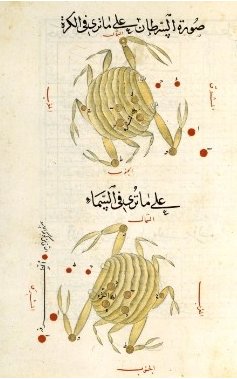
... Men's spirits were thought to dwell in the Milky Way
between incarnations. This conception has been handed down as an Orphic and
Pythagorean tradition fitting into the frame of the migration of the soul.
Macrobius, who has provided the broadest report on the matter, has it that
souls ascend by way of Capricorn, and then, in order to be reborn, descend
again through the 'Gate of Cancer'. Macrobius talks of signs; the
constellations rising at the solstices in his time (and still in ours) were
Gemini and Sagittarius: the 'Gate of Cancer' means Gemini ...
... Night came, midnight came, and Tuu Maheke
said to his brother, the last-born: 'You go and sleep. It is up to me to
watch over the father.' (He said) the same to the second, the third, and the
last. When all had left, when all the brothers were asleep, Tuu Maheke
came and cut off the head of Hotu A Matua. Then he covered
everything with soil. He hid (the head), took it, and went up. When he was
inland, he put (the head) down at Te Avaava Maea. Another day dawned,
and the men saw a dense swarm of flies pour forth and spread out like a
whirlwind (ure tiatia moana) until it disappeared into the sky.
Tuu Maheke understood. He went up and took the head, which was already
stinking in the hole in which it had been hidden. He took it and washed it
with fresh water. When it was clean, he took it and hid it anew. Another day
came, and again Tuu Maheke came and saw that it was completely dried
out (pakapaka). He took it, went away, and washed it with fresh water
until (the head) was completely clean. Then he took it and painted it yellow
(he pua hai pua renga) and wound a strip of barkcloth (nua)
around it. He took it and hid it in the hole of a stone that was exactly the
size of the head. He put it there, closed up the stone (from the outside),
and left it there. There it stayed ...
→ the 23rd
Chinese station Ghost ...
... From a religious point of view, the high regard for
flies, whose increase or reduction causes a similar increase or reduction in
the size of the human population, is interesting, even more so because
swarms of flies are often a real nuisance on Easter Island, something most
visitors have commented on in vivid language. The explanation seems to be
that there is a parallel relationship between flies and human souls, in this
case, the souls of the unborn. There is a widespread belief throughout
Polynesia that insects are the embodiment of numinous beings, such as gods
or the spirits of the dead, and this concept extends into Southeast Asia,
where insects are seen as the embodiment of the soul
...
... Then King
Matua said to Hotu, 'You must not forget [he mee o rehu] the flies [te
takaure] when you take along (all the things that are necessary) and
sail off.
If you forget the flies [ana rehu i a koe te takaure], the multitude
(piere) of the people will disappear [he ngaro]. When you
reach the land [ana tomo ki runga.ki tou kainga] to which you are
travelling [ena koe ka oho], it will be over quickly (?) for the
multitude of the people. When the flies die [ana moko te ihu o te takaure],
the human population dies too [he moko tokoa te ihu o tou piere tangata].'
[E:57]
Moving with the
Sun towards the right along the southern shoreline of Easter Island the dream
soul eventually reached the Bay of Flies, Hanga-Takaure [E:8],
and from there she began to move up onto the peninsula named Aloft, Poike:
.jpg)
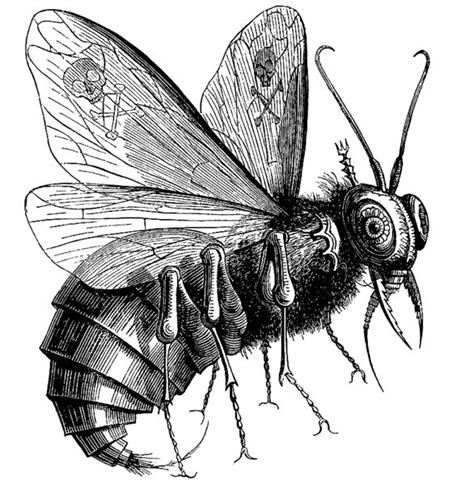
|














.jpg)
